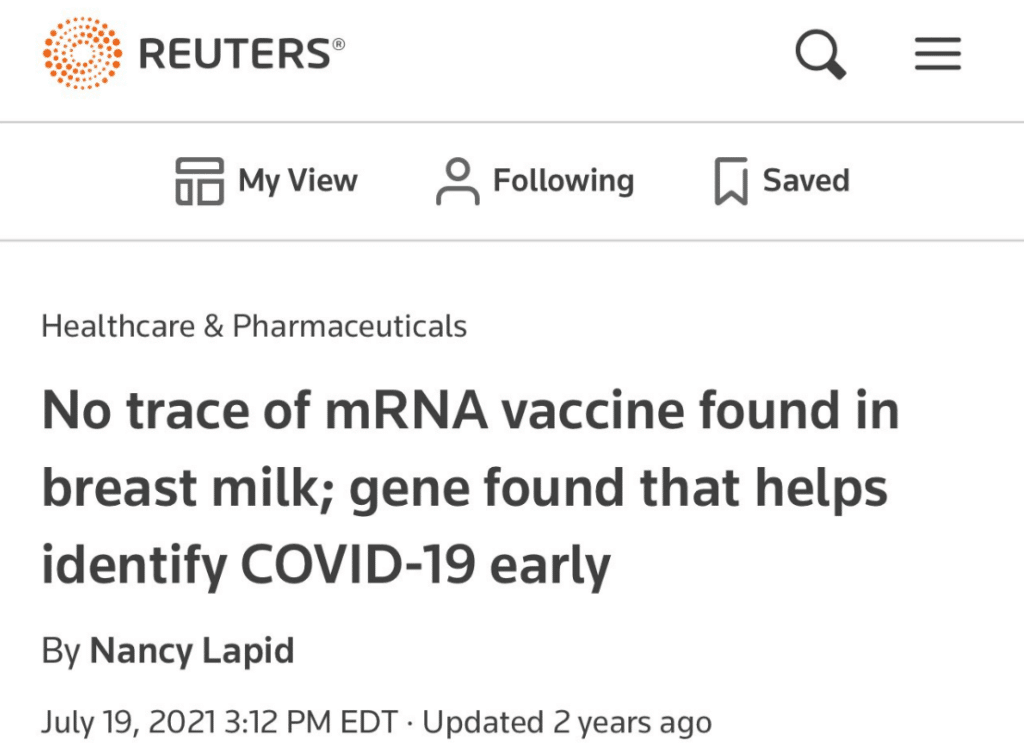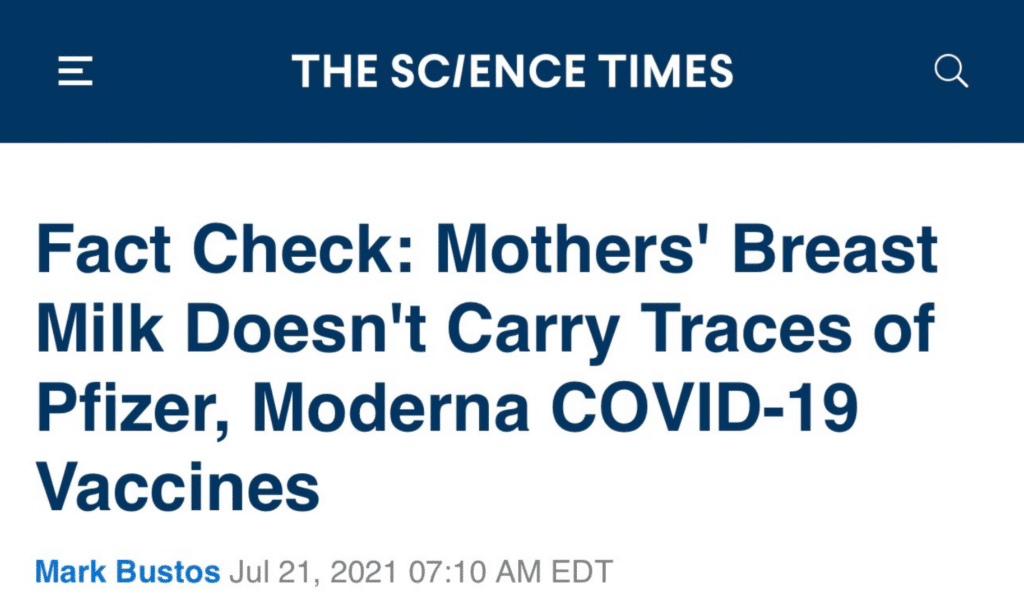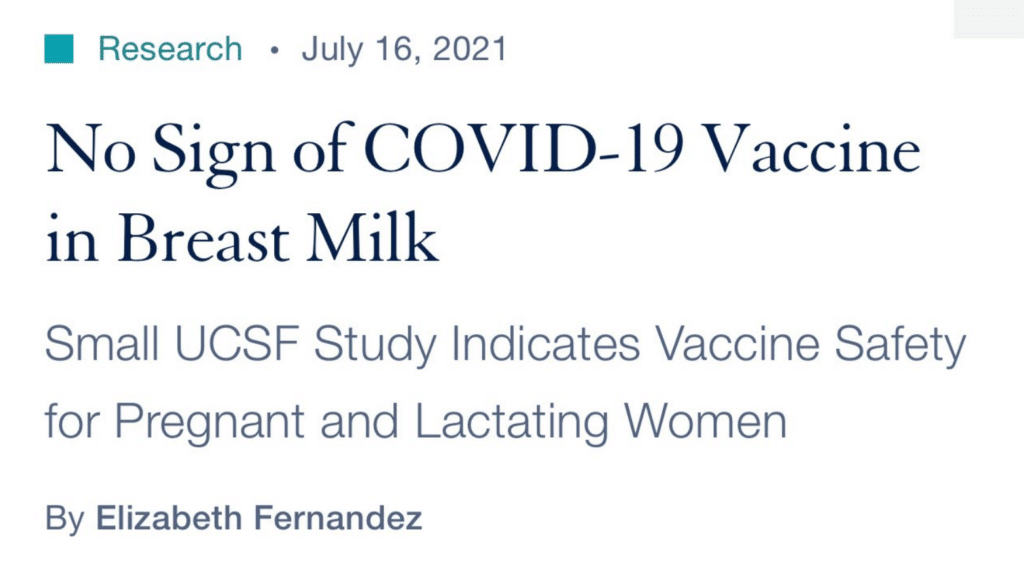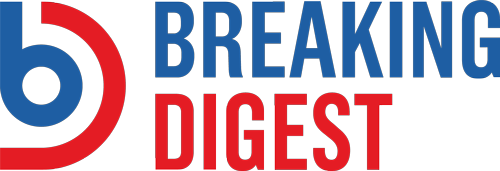
The CDC, American College of Obstetrics and Gynecology, as well as various “fact-checkers”, all previously asserted that the vaccine would not reach breast tissue.
It appears that they were wrong.
A recent study, published in The Lancet, has revealed the presence of trace amounts of mRNA in the breast milk of lactating women who received the experimental COVID-19 vaccine.
The study evaluated whether mRNA from the COVID-19 vaccine could be detected in breast milk after mothers were vaccinated, and to assess its potential for translation.
Researchers gathered breast milk samples from 13 post-partum, healthy, lactating women both before and after they received the COVID-19 vaccine.
“Of 13 lactating women receiving the vaccine (20 exposures), trace mRNA amounts were detected in 10 exposures up to 45 h post-vaccination,” the study found.
“Our findings suggest that the COVID-19 vaccine mRNA administered to lactating mothers can spread systematically to breast milk in the first two days after maternal vaccination,” states the study, “Biodistribution of mRNA COVID-19 vaccines in human breast milk,” published in the October 2023 edition of the British medical journal Lancet.
“Of 13 lactating women receiving the vaccine (20 exposures), trace mRNA amounts were detected in 10 exposures up to 45 h post-vaccination.
— Chief Nerd (@TheChiefNerd) September 19, 2023
Our findings suggest that the COVID-19 vaccine mRNA administered to lactating mothers can spread systemically to the [breast milk] in the… pic.twitter.com/u5SHdZrszD
Despite these discoveries, the researchers maintain their belief that breastfeeding after receiving the vaccine is “safe.”
From the study:
Our findings demonstrate that the COVID-19 vaccine mRNA is not confined to the injection site but spreads systemically and is packaged into BM EVs. However, as only trace quantities are present and a clear translational activity is absent, we believe breastfeeding post-vaccination is safe, especially 48 h after vaccination. Nevertheless, since the minimum mRNA vaccine dose to elicit an immune reaction in infants <6 months is unknown, a dialogue between a breastfeeding mother and her healthcare provider should address the benefit/risk considerations of breastfeeding in the first two days after maternal vaccination.
Chief Nerd highlighted that “fact-checkers” had previously stated that there were no detectable traces of mRNA in breast milk.
Remember when all the fact checkers said there was ‘no trace’ of mRNA vaccines in breast milk?
— Chief Nerd (@TheChiefNerd) September 20, 2023
Whoops. https://t.co/FczE99EbJN pic.twitter.com/OjyaJoNfOU



Unfortunately, one VAERS report exposed the dire consequences of feeding infants with contaminated breast milk.
Yikes pic.twitter.com/BYeBONlnjO
— Chief Nerd (@TheChiefNerd) September 20, 2023
VAERS ID 1124474 reads:
MOTHER OF 12 MONTH OLD BOY RECEIVED FIRST DOSE OF COVID 19 VACCINE AT 9:15 AM SHE BREASTFED HER 12 MONTH OLD SON 3 HOURS LATER AND WHILE BREASTFEEDING THE CHILD DEVELOPED ACUTE ANAPHYLAXIS. TO BE CLEAR: MOTHER HAD THE VACCINE AND THE CHILD HAD THE REACTION



